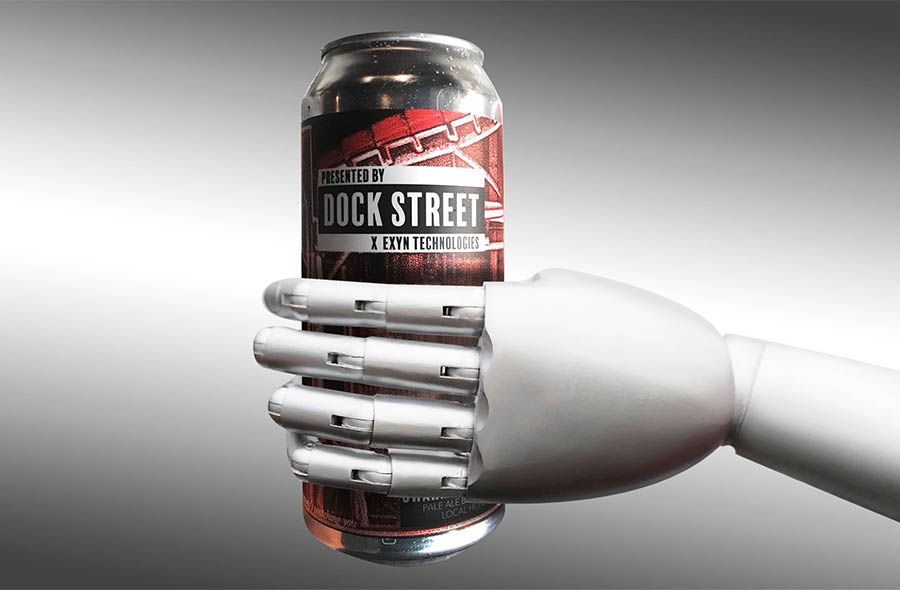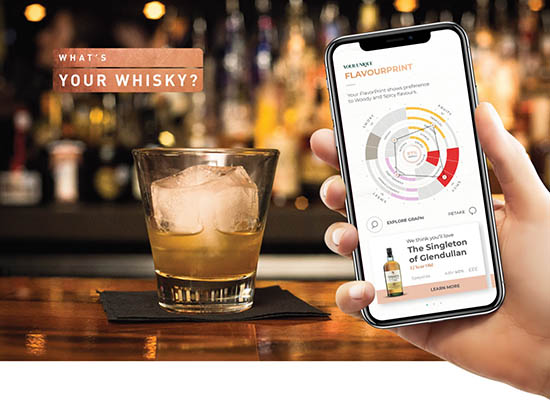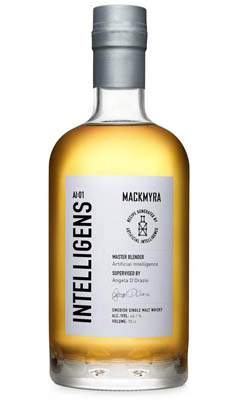May, 2024
San Francisco, USA

Artificial Intelligence in the food & beverage industry valued at USD 3.07 billion in 2020 has seen tremendous growth. It is expected to reach USD 29.94 billion by 2026 (Mordor Intelligence, 2021). The potential of AI in the world of alcohol is vast and can be incorporated at many stages in the consumption process. From building impeccable recipes to shaking the perfect cocktail, machine learning technologies and AI are starting to create a radical effect in the drinks industry.
[[relatedPurchasesItems-35]]
To break it down, AI is Siri on your iPhone or the recommendations you see on your Netflix. Artificial Intelligence (AI) is an expanded branch of computer science concerned with assembling smart machines capable of performing tasks that generally require human intelligence. Thus, it is the ability of a computer or a robot controlled by a computer to do tasks that are usually done by humans.
The alcohol industry is already making great use of AI and has more and more to explore and invent. Collecting enormous amounts of data through sensors, warehousing and marketing have involved the usage of AI to manage and utilize this data. Low costs, limited waste, fewer human errors are just a few benefits of incorporating AI in your business model. The changing consumer behaviors, advancements in technology, and severe regulations are dynamic when it comes to the beverage industry and AI is a good tool to leverage these transitions.
AI in the drinks industry is helping brands by obtaining the data from their past records and strategizing it with the help of AI-implemented algorithms. This can help in predicting sales, understanding the behavior of consumers, managing the supply chain, and a lot more which can lead to the growth of companies. AI has helped a large number of players in the drinks industry to tap into their consumer preferences, get actionable insights and personalize the experience for their consumers. The use of AI is further incorporated into the supply chains, marketing, packaging, and other functions in the beverage industry too. Few of the beverage brands that are already making the most of it are:

What's Your Whisky is an AI-powered flavor profiler which helps whisky fans across the world discover their Single Malt, by mapping the user's personalized Flavourprint. Source - Mindfunk
“What’s Your Whisky?” is a digital application launched by Diageo that analyzes the preferences of their consumers based on a series of questions about their flavor and taste preferences. It then creates a flavor chart and recommends a Single Malt that closely matches their taste. Their new business model not only boosts revenues but also revamps how consumers connect with the brand and also strengthens customer loyalty.
 “Intelligens”, world’s first AI-generated and human-curated whiskey is a limited edition by Mackmyra, a Swedish whiskey distillery. In collaboration with Microsoft and Fourkind, Mackmyra created a system that was integrated with existing blending recipes, sales data, and customer preferences. With reiteration, the algorithm learned to recognize which flavor combinations would work the best. The result was Intelligens and the first batch of this blend was launched in 2019.
“Intelligens”, world’s first AI-generated and human-curated whiskey is a limited edition by Mackmyra, a Swedish whiskey distillery. In collaboration with Microsoft and Fourkind, Mackmyra created a system that was integrated with existing blending recipes, sales data, and customer preferences. With reiteration, the algorithm learned to recognize which flavor combinations would work the best. The result was Intelligens and the first batch of this blend was launched in 2019.
The state-of-the-art AI network of AB InBev, a Brazilian-Belgian brewing company, helps in predicting the quality of their final product. The system interprets real-time data compiled during the brewing process that includes the amount of Carbon Dioxide used and the length of time taken for each stage and feeds it to the network. Professional beer tasters then taste the resulting beer and that is logged into the AI model. By repeating this process, the algorithm learns the optimum conditions that are required to produce the perfect product. With further reiterations, the model finetunes those settings to produce an ever-improving brew. AB InBev has incorporated AI in several other segments of the company as well.
Beer Fingerprinting Project, a multimillion-dollar project to analyze the different flavors in its beer using AI was launched by Carlsberg, a Copenhagen-based brewery. In collaboration with Microsoft, Aarhus University, and the Technical University of Denmark, this project enables the brand to create 1000 different beer samples each day. The flavor fingerprint of each sample is determined with the help of advanced sensors. Later the yeasts are analyzed to map the flavors that can help in making distinctions between them. Hence, the data collected by the AI-powered system could help in developing new varieties of brews.
The benefits of incorporating AI in the business model are not just limited to high revenues, customer loyalty, personalization for consumers but a lot more than that. It is about your company playing a huge role in preserving the environment. Combining AI with sensor-embedded smart machines is helping companies to match consumer preferences with production which is minimizing waste. This is also reducing equipment maintenance and repair times which is decreasing the plant energy expenditures. Beer companies like Moosehead Breweries have embedded their conveyor belt at their bottling plant with sensors and data analytic software which helps them in increasing throughput and reducing cost. The internet-enabled sensors allow them to monitor their supply chain and procurement operations and align production based on the customer demand in various market regions. This reduces transportation and other costs that eventually help in reducing their carbon footprint.
With technology continuing to enter new folds, beverage players must stay ahead in the competition, reach more and more consumers and remain profitable at the same time. Thus, they need to utilize the power of AI and consumer data to create new trends and reach out to new customer segments. Here are a few ways in which AI can be a game-changer for your company.
1. Utilize rich insights and consumer feedback to acknowledge the evolving preferences of consumers and demands in real-time - With consumers constantly seeking new products with unique taste profiles, AI can be a perfect game-changer for beverage brands to stay ahead.
2. Access superior quality data quickly and with more rigor - Errors and biases that tend to arise from human-led research can be eliminated with the help of AI and provide more precision while saving on time.
3. Eliminate human interaction with sensitive information and data by enhancing the privacy measure - AI would help build customer loyalty by taking privacy measures to keep their data safe with the help of AI.
4. Digital Tasting Systems - Virtualize the entire market research process where the ideas and concepts can be tested by AI-powered personas incorporated with the target audience attributes. This will allow the brand to refine the product based on the attributes and generate beverages with ever-increasing quality.
Everything comes packed with challenges and so does incorporating AI into the drinks industry. The scope is large and has enormous growth potential but it does have some challenges that come with it. Some of the few challenges faced by the drinks industry would be:
1. Lack of human interaction - One of the major aspects of visiting a bar is the drinking experience there. The presence of AI-based systems would be beneficial for big beverage players and brands in the market but when it comes to the hospitality sector in terms of drinks, it might pose a challenge. The digital disruption in the drinks industry may lead to unemployment and a lack of experience for consumers in bars and pubs.
2. Data Privacy and Security - One of the biggest threats on the internet is the usage of personal data. All the AI models in the drinks business are based on the availability of our preferences and data. With so much information pouring, there might be a chance of data leakage and our data could be used for inappropriate purposes.
3. Biased Data - With so much data collected, the probability of data being biased to a specific region may be high. When a product is being developed for global consumption with the help of AI, it might be a result of biased data from a particular region and may not attract everyone.
4. Huge Investment - Incorporating new systems and smart machines in your business model comes attached with a big price. This would pose a huge investment for beverage brands that are new in the market and our tasking on their revenues.
All in all, AI offers a promising and interesting future for beverage brands. According to Capgemini, manufacturing companies working in the worldwide beverage industry plan to build 40% more smart factories in the next five years. AI can help the drinks industry to reap numerous advantages and develop a broader reach. Hence, it’s time to make the most of your data.
Header image source - from Popular Mechanics created by Kory Kennedy using Getty images & Courtesy Dock Street Brewery
Article by Shreya Kohli, Beverage Trade Network